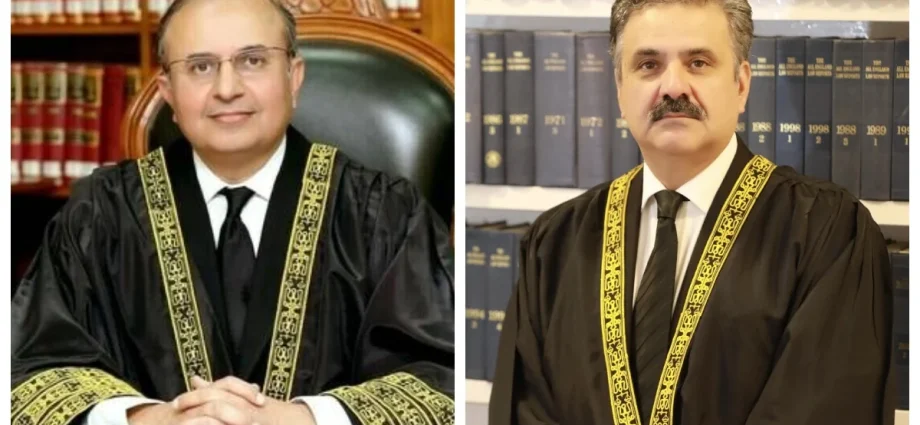Four Supreme Court Judges Write to Chief Justice on Judges’ Appointment Issue
Islamabad ( Web News)
Four judges of the Supreme Court have written a letter to Chief Justice of Pakistan, Yahya Afridi, regarding the appointment of judges in the Supreme Court. The letter questions whose agenda and interests are causing the court to face this situation, emphasizing that appointments should be halted until the seniority of Islamabad High Court (IHC) judges is determined.
The letter, signed by senior puisne judge Justice Syed Mansoor Ali Shah, Justice Munib Akhtar, Justice Ayesha A. Malik, and Justice Athar Minallah, states that a constitutional bench may recommend a full court in the 26th Amendment case. If new judges are appointed, it could lead to a dispute over the composition of the full court.
The letter highlights that three judges were transferred to the Islamabad High Court, and according to the Constitution, they were required to take a fresh oath. Without the oath, their judicial status becomes questionable. Despite this, the seniority list of the Islamabad High Court has already been altered. The judges warned that appointing new judges under the current circumstances could create an impression of “court packing” and questioned why the judiciary is being subjected to such a situation.
The judges further questioned whose agenda and interests are being served by putting the judiciary in this predicament. They argued that judicial appointments should be postponed until the decision on the 26th Amendment case, or at least until the constitutional bench rules on the full court request.
The letter also expresses concerns about the recent transfer of judges to the Islamabad High Court, stating that, according to the Constitution, judicial transfers can only be temporary, not permanent. The judges emphasized that transfers should be for a specified period, and the lack of a time limit implies that the transfer order can be revoked at any time.
Furthermore, the judges argued that a transfer is only valid if the high court has a full bench of judges. After being transferred, judges are constitutionally required to take a fresh oath, as the oath applies specifically to the high court to which they are appointed. The letter asserts that the oath taken for one high court does not apply to all high courts.
The judges criticized the Chief Justice of the Islamabad High Court for unilaterally determining seniority without considering constitutional provisions. They pointed out that a judge ranked 15th in seniority at the Lahore High Court was made the senior-most judge in Islamabad, making him eligible for elevation to the Supreme Court. They questioned how judicial seniority could be altered in this manner.
The letter also raises concerns about the full court composition if the constitutional bench accepts the request for a full court hearing. It questions whether the newly transferred judges would be included in the full court. If they are not included, it could lead to doubts about the legitimacy of the full court. Conversely, if the existing constitutional bench hears the case, public trust in the judiciary, which is already fragile, may be further eroded.
The judges stated that the public perceives the current situation as an attempt at “court packing” and questioned whose agenda and interests are being served by undermining the judiciary.
It is noteworthy that on February 1, President Asif Zardari approved the transfer of one judge each from the Lahore, Sindh, and Balochistan High Courts to the Islamabad High Court. Earlier, on January 31, Islamabad High Court judges had expressed concerns over reports suggesting that judges from other high courts were being transferred to Islamabad to appoint a new Chief Justice.

